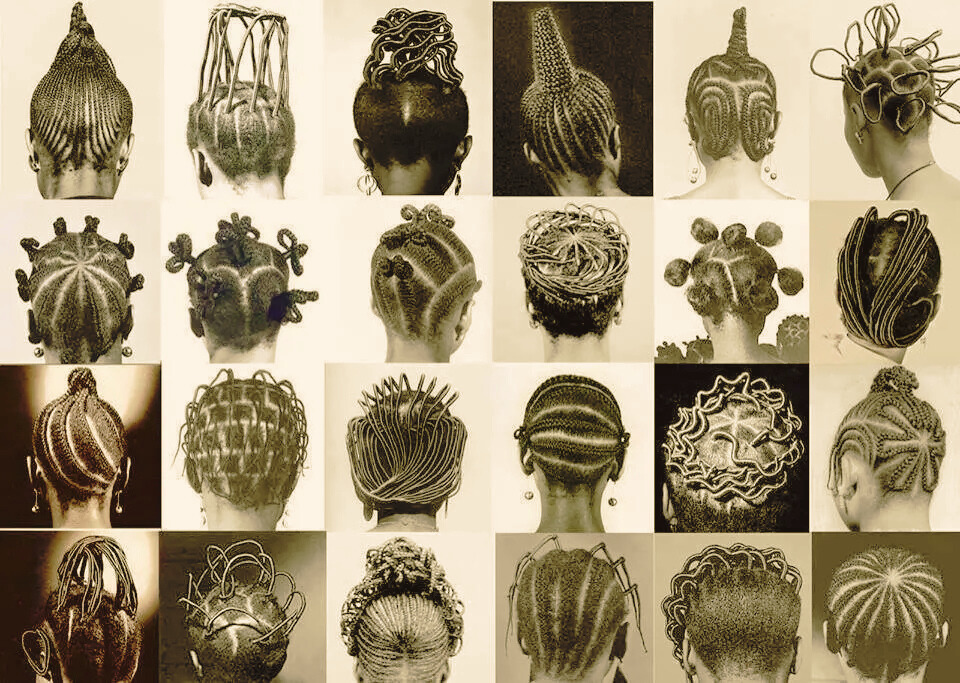The Rich History and Power of African Hair Braiding
As we celebrate Black History Month, it’s an ideal time to recognize the significant cultural traditions that have shaped the African diaspora and the incredible contributions of Black communities worldwide. One such tradition that holds immense cultural, historical, and spiritual significance is African hair braiding. This art form is much more than a hairstyle; it's a deep-rooted practice that transcends generations and regions, offering a powerful testament to resilience, identity, and empowerment.
The Origins of African Hair Braiding
African hair braiding is an ancient tradition that dates back thousands of years. In many African cultures, the way one’s hair was braided held specific meaning, whether it represented social status, tribe, age, marital status, or even spiritual beliefs. The intricate styles were not only a form of self-expression but also served as a way to connect to one's heritage, community, and ancestors.
Each braid, twist, and curl often told a story. In some regions of West Africa, the specific pattern of braids could indicate the wearer’s tribe or family lineage, with different designs unique to certain groups. Hair was viewed as a symbol of beauty and strength, and the act of braiding was often done in community settings, creating a sense of bonding among family members and friends.
With the transatlantic slave trade, African braiding traditions were brought to the Americas. Enslaved African women continued braiding their hair as a form of resistance to the harsh and dehumanizing conditions they faced. Braids in particular became a symbol of freedom, creativity, and defiance in the face of oppression. Over time, these traditions evolved, blending with influences from other cultures; they never lost their significance.
Honoring Pioneers of the Natural Hair Industry: A Tribute to Annie Pope-Turnbo Malone and Our Legacy
In the post-slavery era, between 1902 and 1920, three women made monumental strides to uplift African American women—Annie Pope-Turnbo Malone, Madam C.J. Walker, and Madame Sara Spencer Washington. These women didn’t just rise above adversity—they changed the course of history. They used beauty culture to gain financial independence and create paths to success, marking the beginning of natural hair care as a recognized industry.
Annie Pope-Turnbo Malone, born on August 9, 1869, is often credited as the first African American woman innovator in hair care. Her dedication to styling African American hair in healthier ways led her to reject harmful practices like using animal fats and “grease.” Instead, she developed her own scalp and hair care products, which she demonstrated and sold throughout Illinois. Malone’s work not only empowered women to embrace their beauty but also paved the way for future entrepreneurs in the natural hair industry.
As I reflect on this legacy, I’m reminded of my beloved mother, Amazon Smiley, whose pioneering spirit and unwavering dedication shaped our family's contribution to the natural hair care industry. It is her wisdom and knowledge that inspire me every day, guiding my journey and fueling my passion to help others embrace their natural beauty. Her legacy continues to thrive, and it’s through her influence that I’m able to carry the torch for future generations of Black women in this industry.
The Empowering Role of African Hair Braiding Today
Today, African hair braiding stands as one of the most celebrated forms of self-expression and empowerment in the Black community. Beyond its deep-rooted history, hair braiding continues to serve as an important form of personal expression, especially for those who embrace natural hair.
For me, it’s not just about the hairstyles—it’s about ensuring that we, as a community, understand the significance behind the styles and how they can be a tool for personal and cultural empowerment. I’ve dedicated myself to providing the tools, education, and support needed to help empower individuals in our community, especially Black women, to embrace their natural beauty.
How You Can Get Involved
This Black History Month, consider how you can support and contribute to the movement that continues to uplift African hair braiding and its legacy:
- Support Black-Owned Hair Care Businesses – Brands like Evolving Textures are committed to offering products that celebrate and support textured hair. Supporting Black-owned businesses helps empower and sustain the craft.
- Learn About the History of Hair Braiding – Understand the cultural and historical significance of braiding and share that knowledge with your family and friends.
- Promote Inclusivity in the Beauty Industry – Advocate for fair treatment and representation of Black hairstylists, especially those skilled in braiding, loc maintenance, and natural hair care.
- Pass On the Tradition – If you're a braider or stylist, teach the next generation. Whether learning or teaching, it’s a powerful way to connect with and preserve our heritage.
- Support Community Events – Participate in or support events that celebrate Black culture and hair care traditions.


Annie Turnbo Malone, a pioneering African American entrepreneur and philanthropist, made significant contributions to the natural hair care industry. Born on August 9, 1869, in Metropolis, Illinois, she developed innovative hair care products tailored for African American women. Her dedication to enhancing hair health and beauty led her to establish Poro College in St. Louis, Missouri, a renowned institution that trained thousands of beauticians. Wikipedia, the free encyclopedia
To honor her legacy, you can view a photograph of Annie Turnbo Malone on her Find a Grave memorial page. Find a Grave
Additionally, the Annie Malone Historical Society offers a collection of photos and information about her life and achievements. Annie Malone Historical Society
These resources provide valuable insights into her pioneering work and enduring impact on the natural hair care industry.

